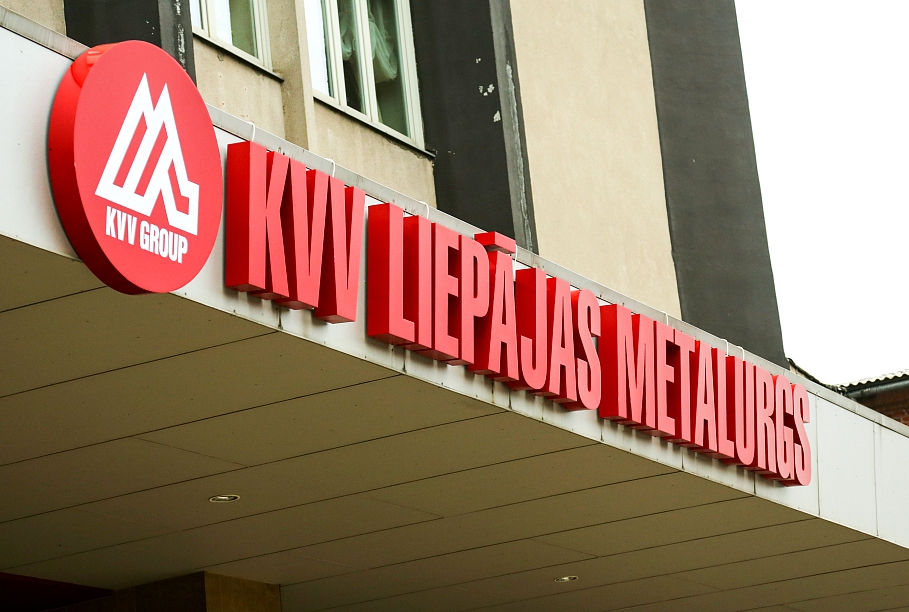The Liepāja City Council also confirmed it has received notice from the joint-stock company’s leadership that its electric arc furnace had to be shut down.
“This was certainly a surprise, because just last week there were no indications of the kind when the city councilmembers visited the plant,” said the municipality’s spokesman Andrejs Rjabecvs.
Mayor Uldis Sesks is trying to schedule meetings with the company’s Ukrainian owners to discuss the current situation and learn of its further plans, especially as regards the recently rehired workers who may now again face an extended term of unemployment.
According to Kovaļenko, the KVV Group from Ukraine has invested €50 million in the renewal of the production line.
“Unfortunately we have been forced to review our optimistic forecasts with regard to the steel melting workshop, because production costs can’t raise us to the level needed for competing with similar metallurgical plants, either inside the EU or other world regions,” the company board member said.
“The main reason is the high mandatory electricity procurement component’s proportion of the production costs, which would constitute €12 million a year if it were operating at full capacity (75,000 tons per month). We know the appropriate ministry is working on solving this problem soon. But we regret that we must now pause in our plans to raise capacity to three shifts,” Kovaļenko explained.
This has affected the employment situation at KVV Liepājas metalurgs, as part of the workforce cannot stay at their jobs for now. “We hope the question of the electric power costs will be addressed in the next months so we can run the plant at full capacity and hire more staff, as was originally planned.
By the middle of May the company had managed to produce 90,000 tons of steel armature from the rolling mill that was relaunched in March and hire 960 workers to start up the steel melting workshop.
Almost all the product was intended for export to Algeria, while about 10% of the remainder was slowly being offered to clients in Poland, Germany and Finland.
The KVV Group, a Ukrainian holding company, purchased the plant for €107 million in October, and received the keys to it in the first weeks of January.
Liepājas metalurgs used to be one of the largest manufacturers and exporters in the Baltic states before it was mothballed in 2013, hitting the local economy hard.































